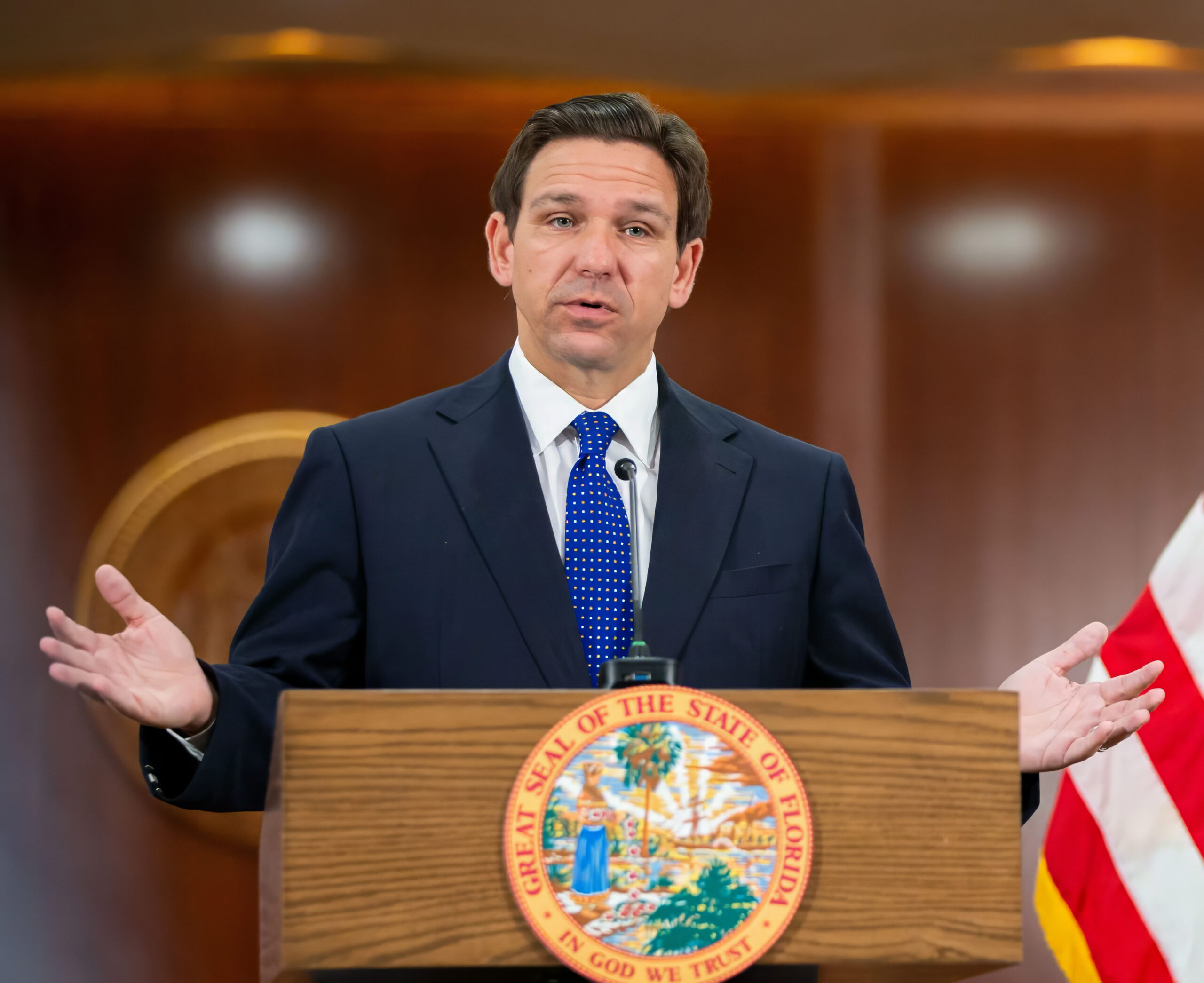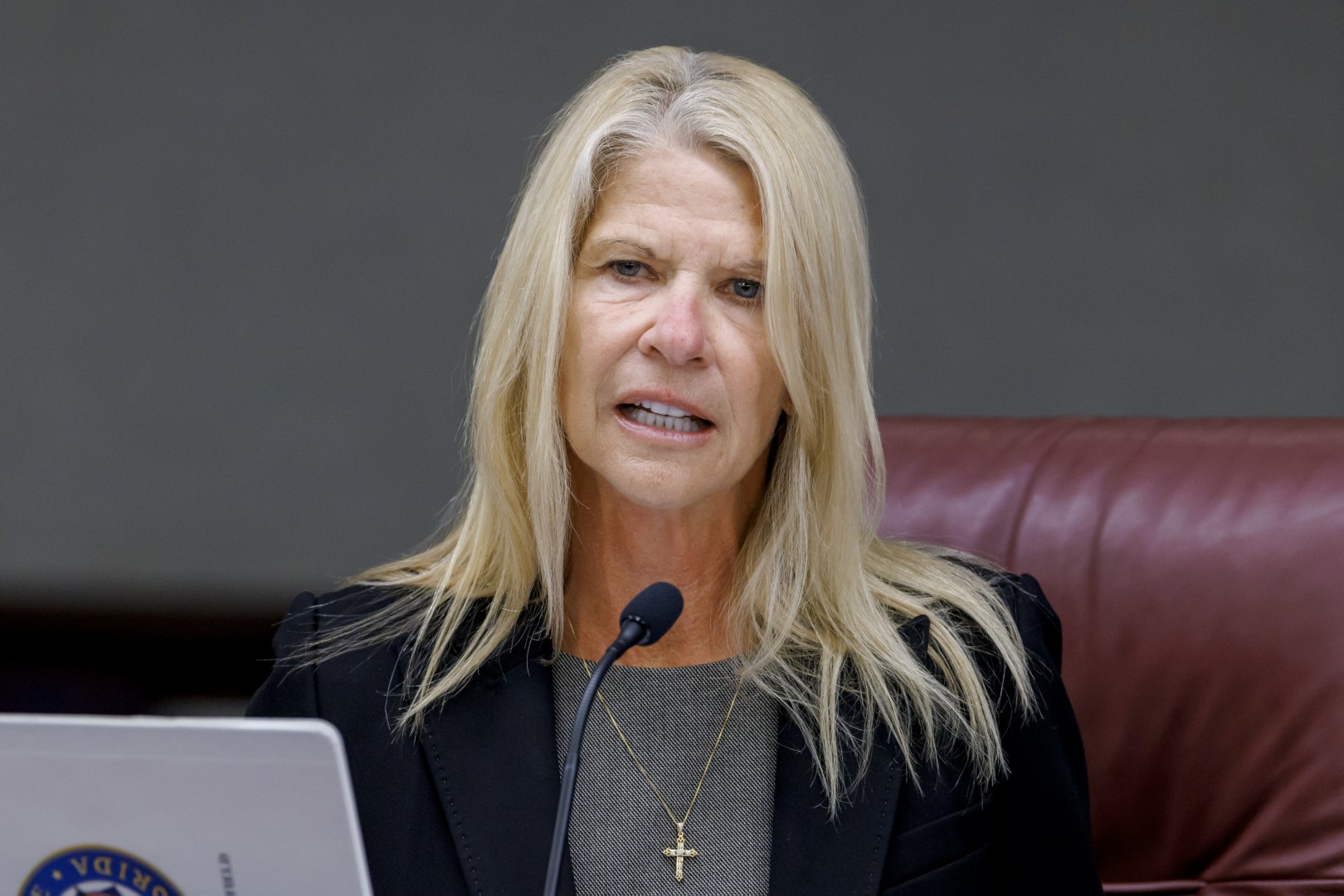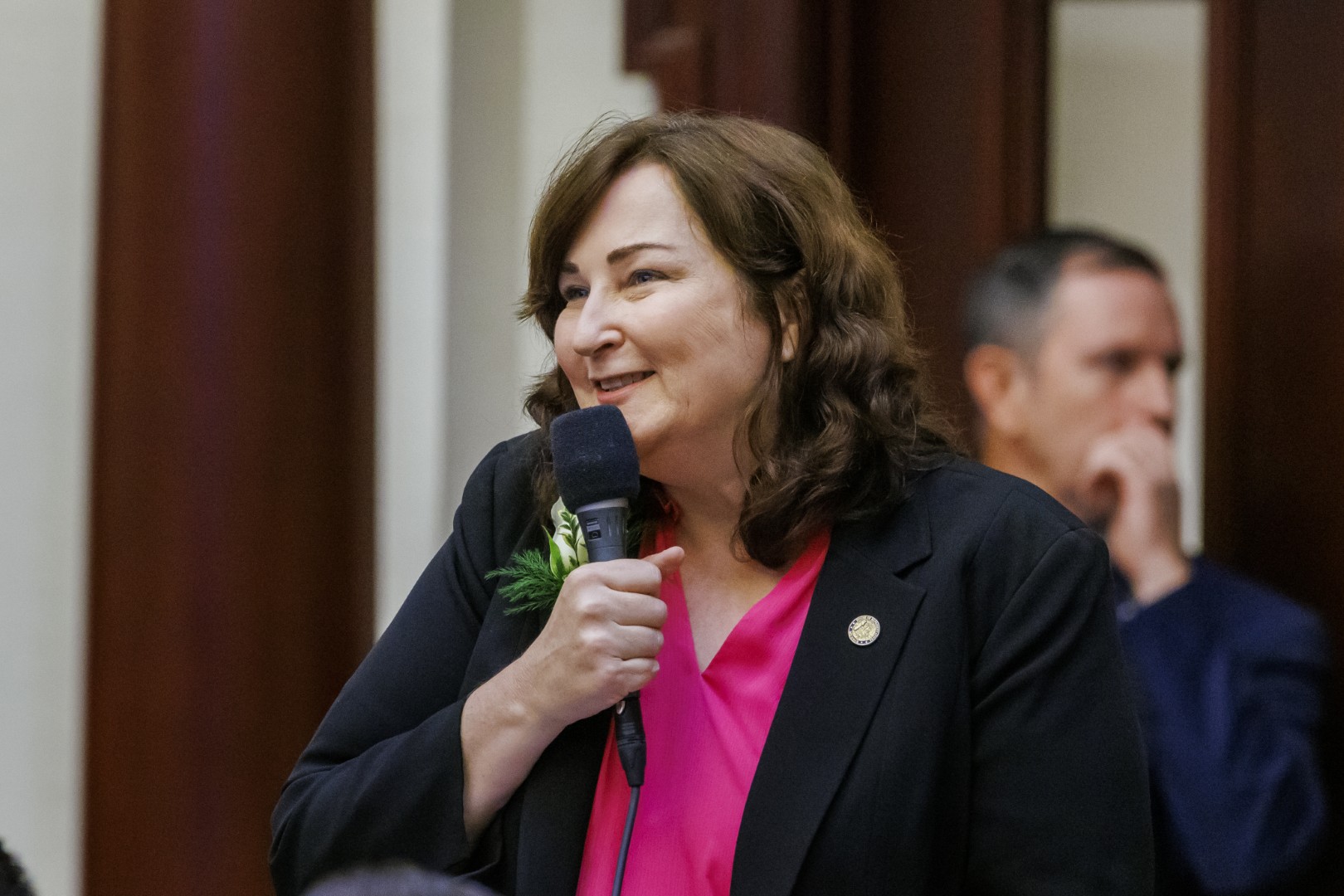The Florida Education Association, a union representing teachers, support staff and higher education faculty, is blasting Gov. Ron DeSantis’ proposed budget as inadequate, and calling on the Legislature to “fully commit to students” and public schools.
In a sweeping rebuke to DeSantis’ budget, chock full of tax cuts, and a plea to lawmakers who will take up the budget next month during the annual Legislative Session, the group noted “nominal increases for educators and support staff,” but argued the hikes don’t keep pace with inflation and won’t “move the needle on per student funding.”
It further noted Florida’s ranking near dead last in average teacher pay, as well as ongoing teacher and support staff shortages, declining college admission test scores and declining reading and math scores. The point: “Current policies are failing our students.”
“Educators in Florida want what every hardworking American wants: to pay their bills with a single job, have healthcare without premiums that push them into debt, work without political interference, and retire with dignity after a lifetime of service. They want to build better lives for themselves and their families,” FEA President Andrew Spar said.
“This budget proposal is legislators’ chance to take a bold stand and commit to our students, educators and their constituents by fully investing in public education. As we head into this legislative session, we are eager to work with leaders in Florida’s Legislature to focus on what truly matters: providing the resources and support educators and students need to thrive. Now is the time to prioritize the resources and policies that will strengthen our schools, uplift our communities, and help build better lives for every child in Florida.”
The lengthy memo details failures it identified in DeSantis’ proposed budget, including some that may be hard to spot for the uninitiated. The group claims a 2023 bill (SB 256) that removed the ability for some union members, including those in the FEA, to pay dues from their paychecks came at a steep cost, despite DeSantis saying at the time that it would not cost taxpayers. Instead, the group argues DeSantis is seeking $1.7 million from the Public Employees Relations Commission (PERC) to fund increased workload they say was created by the law.
The group further laments DeSantis’ prioritization of school vouchers in his budget, which seeks to allocate $3.3 billion to the program allowing students to use taxpayer-funded vouchers to attend private schools. FEA leaders note his budgeted amount for school vouchers is double the amount set aside for teacher salaries in the proposed budget.
“Today, estimates reveal that 70% of voucher students have never attended public schools, meaning public tax dollars are being used as private tuition assistance for families who could already afford it,” the press note claims.
It further complains that additional funding for school vouchers exacerbates the already troublesome cost to public education, arguing $4 billion “is siphoned from public education to fund corporatate-run charter schools and voucher programs.” That is a common refrain among school choice critics who argue money being spent to help kids go to private schools, or to create privately-run, but publicly-funded charter schools, takes away from funding that could be used to better the public school system.
The back and forth is about as old as time, and amounts to something of a, “which came first, the chicken or the egg” scenario. School choice supporters say vouchers and charters are needed to give parents options when their kids are stuck in failing schools, while school choice critics argue schools are struggling because funding is being diverted.
While school choice was initially pitched to Floridians — and parents throughout the nation — as a way to help low-income families attain quality education for their children, FEA argues programs are now catering to people who don’t necessarily need the help. Indeed, the Legislature in 2023 passed a universal school choice measure (HB 1, which was substituted for SB 202), which allows for $8,000 per student to attend private school and is available to all families, regardless of household income.
But the press note isn’t just an airing of grievances. It also offers a path forward, and pleads with lawmakers to take action.
The FEA recommends investing $1,000 more per student each year and fully funding the Public Education Capital Outlay (PECO) program to make needed facility repairs at school campuses, including to rid aging schools of mold, replace water fountains that may produce lead-containing water, ensuring working air conditioning and providing proper ventilation.
The FEA also asks the Legislature to prioritize developmentally appropriate, teacher-led assessments, rather than mandated standardized tests. And it asks lawmakers to pass legislation that would safeguard families from unaccountable private and charter schools.
Post Views: 0

 Entertainment8 years ago
Entertainment8 years ago
 Entertainment8 years ago
Entertainment8 years ago
 Politics8 years ago
Politics8 years ago
 Tech8 years ago
Tech8 years ago
 Tech8 years ago
Tech8 years ago
 Tech8 years ago
Tech8 years ago
 Politics8 years ago
Politics8 years ago
 Tech8 years ago
Tech8 years ago










